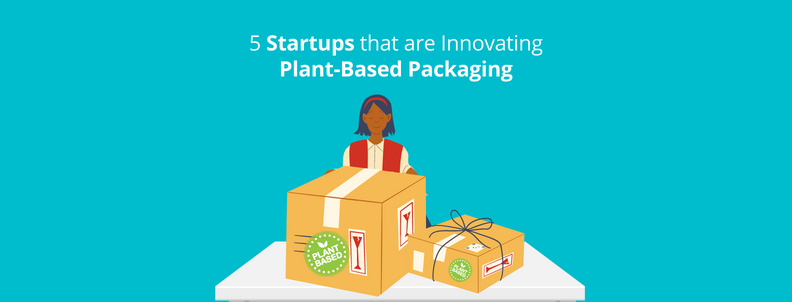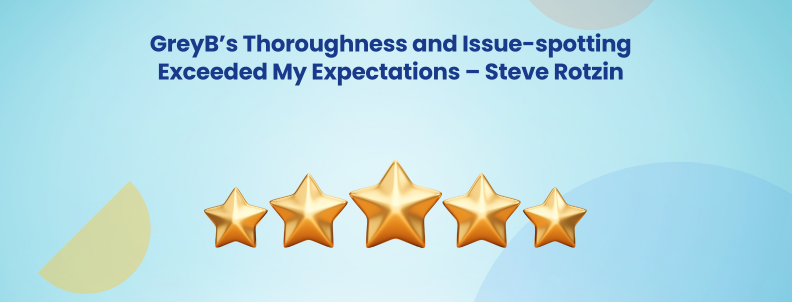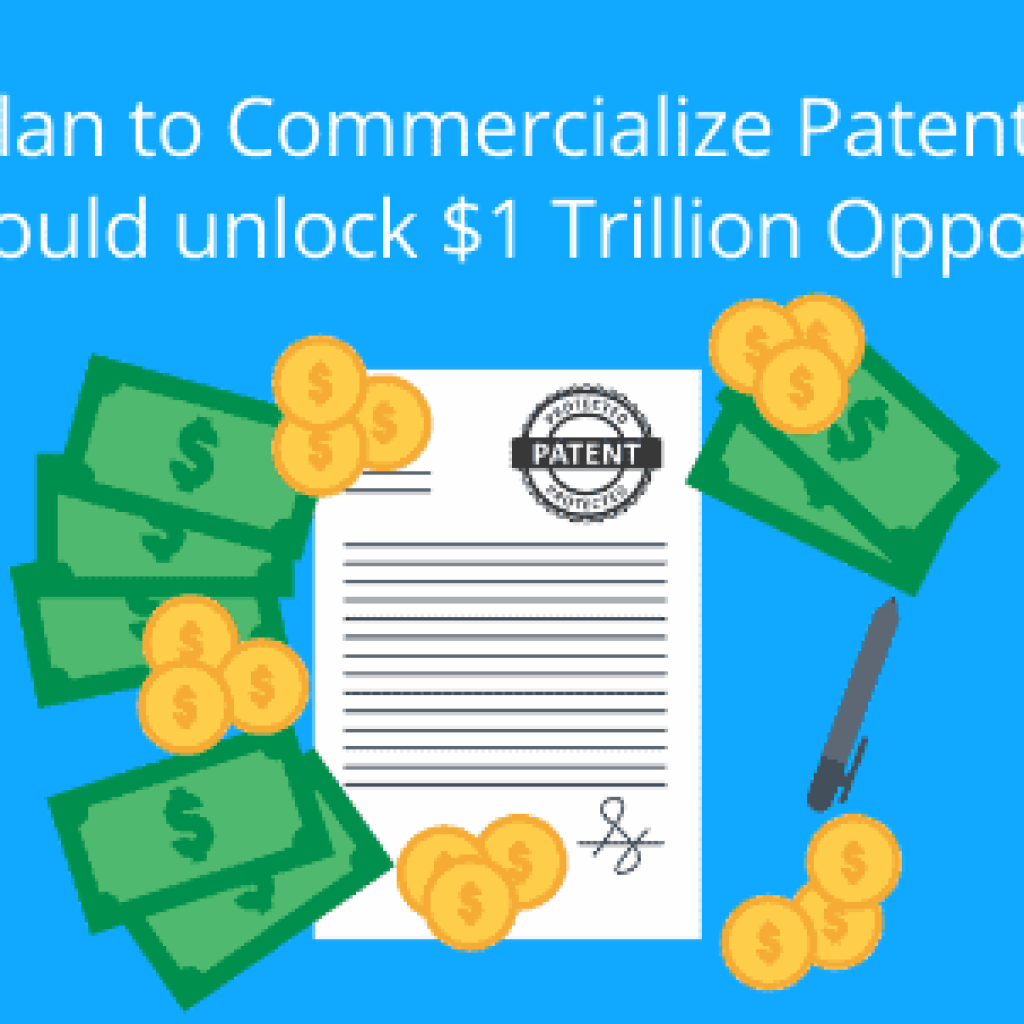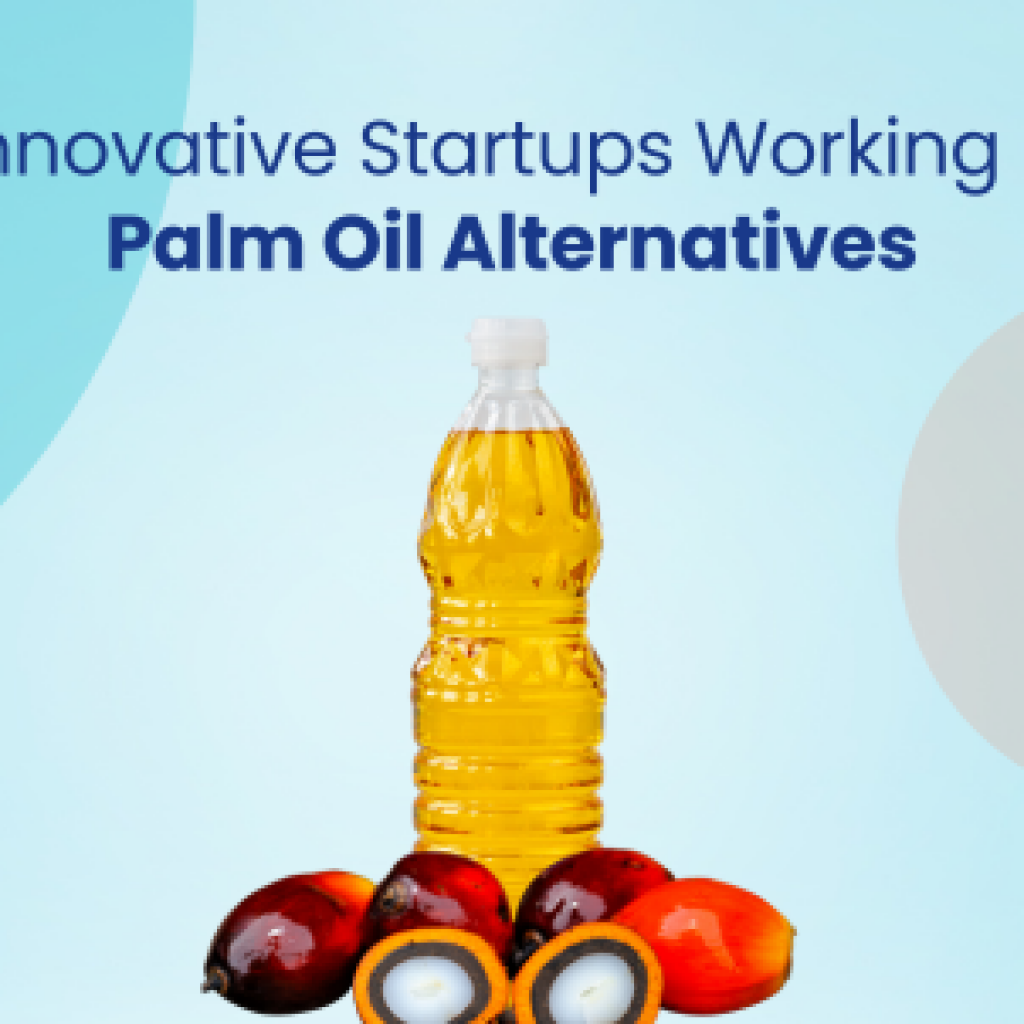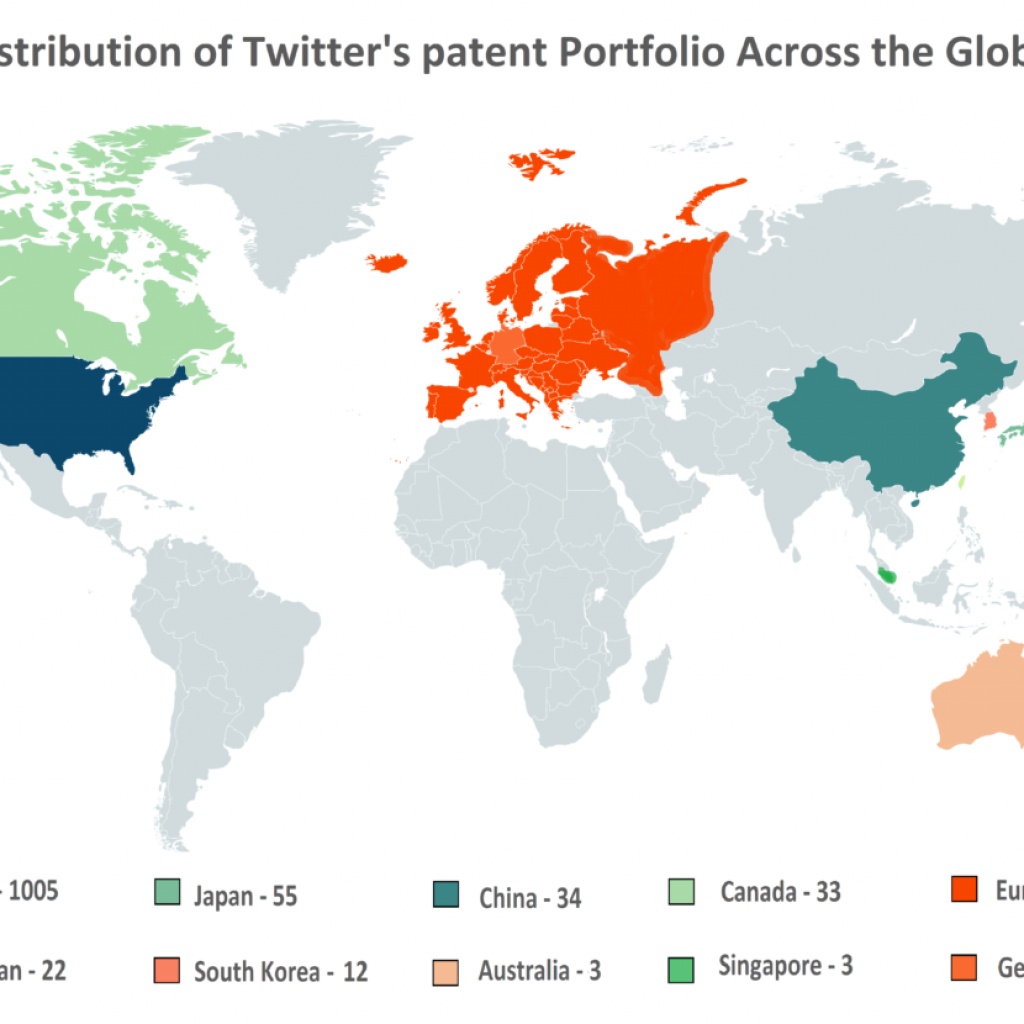Mushrooms, local crops, and plant protein alternatives- emerging companies are seeking help from plants to fulfill consumer needs. Today’s generation is increasingly aware of how their actions affect the environment. As a result, even the packaging industry is now opting for plant-based packaging solutions.
86% of younger generations (<45) consumers are willing to pay more for sustainable packaging. This indicates that now is the right time to invest in sustainable packaging.
To provide people with satisfactory and acceptable green packaging solutions, startups are experimenting with solutions made from plant, bio, food, and agricultural waste. While there are many solutions, few are more acceptable, and plant-based packaging is one of them.
The article provides 5 plant-based startups with solutions to improve packaging.
Interested in finding Packaging Innovation Trends in 2024? Get the exclusive report by filling out the form below:
Here are five plant-based packaging startups shaping the sustainable packaging industry:
1. Plant Switch
| Website | https://www.plantswitch.com/ |
| Headquarters | Dallas, Texas, USA |
| Founded | 2020 |
| Total Funding Amount | $3.7 Million |
| Innovative Tech | Agave-based bioplastic compounds |
Plant Switch manufactures daily-use products such as straws and cutlery from biodegradable plant-based materials. The startup upcycles the waste obtained from the tequila production process. Their products have undergone ASTM D-5511 testing, the industry standard for determining biodegradability. The test proved that over 90% of their material degraded in the first 100 days in simulated landfill conditions, and 100% degradation took somewhere between 1-5 years, depending upon the product (Source)
The impact of their products has been significant for their clients, who have saved over 5 tons of plastic. This translates to almost $170,000 of savings in economic damages. (Source)
Their monthly revenue has increased by 350 percent since January 2021, with more than $1M in annualized sales. (Source)
So, what makes Plant Switch different from other Packaging Startups?
What sets Plant Switch’s straws and cutlery apart is that they neither get soggy nor disintegrate when left in liquid. Moreover, its single-use cutlery can be used several times by the users if they wish. The cutlery is compatible with a vast range of temperature conditions. (Source) (Source)
Plantswitch’s cutlery and straws are primarily composed of agave fibers, agave-based resin, and a degradation additive. These agave fibers are recycled products derived from agave leftovers from the tequila production process. The startup has filed a patent to protect its blend comprising agave fiber, bagasse, coconut oil, agave-based bioplastic compounds, and organic, degradation-enhancing additives and pigments. (Source)
The degradation test for the products was carried out in aerobic and anaerobic landfill environments and as per ASTM 5511 & ISO 15985 standards. (Source)
What does the startup plan to achieve in the near future?
In 2021, the startup aimed to raise $4M in a Series-A funding round. However, they could only secure $500,000 on their first attempt. Fast-forwarding to February 2022, they had secured $3.25 Million in a seed round, fulfilling their 2021 target. They aim to utilize the investment for bolstering their supply chain infrastructure and adding manufacturing partners to expand the development of their products and processes. (Source)
To further build its business, the startup hired Jeff Yandian as its new chief product officer in October 2021. He previously worked as the director of packaging for Sonic and senior category manager for Brinker International.
Along with funding and hiring, the company is also expanding its product offerings, with plans to launch clamshell containers, plates, and bowls in the Q2 of 2022. PlantSwitch is also planning to launch a carbon offsetting program for the restaurant and hospitality industries to help clients calculate their carbon emissions and offset them with a carbon exchange partner. (Source)
PlantSwitch has planned to diversify its plant-based consumer goods range and bring out sustainable cups, take-out containers, and bags later in 2022 (Source). Further down the line, they want to experiment with their Agave formula and test it with other plants, such as hemp and flax, from different regions (Source),
Partnerships and Collaborations
PlantSwitch’s B2B business has grown from three clients in June 2020 to 300 in August 2021 (across the US). The company works with eight US-based distributors (Sysco, Ed Don, Aramark, Imperial Dade, Bunzl, Ben E Keith, Performance Food Group, and Reinhart Foodservice). Apart from that, they have recently partnered with Oceanic Global. (Source)
To keep their blend integrated, PlantSwitch partnered with Utopia Plastix, a company that provides durable, natural, and affordable plastic alternatives. Utopia’s plant resin technology stops the disintegration of PlantSwitch’s blend in water. (Source)
Interestingly, Utopia has also filed a patent to protect its plant-based compounded resin (used by Plantswitch in the partnership).
2. Mushroom Material
| Website | https://www.mushroommaterial.com/ |
| Headquarters | Auckland, New Zealand |
| Founded | 2020 |
| Total Funding Amount | $280K |
| Investors | Icehouse Ventures, Eastern Pacific Accelerator |
| Innovative Tech | mushroom-based packaging material |
The startup uses mushroom-based material to replace polystyrene/ styrofoam packaging. The material is compostable, biodegradable, and sustainably produced. (Source)
The startup collaborates with its clients to make the material apt for market use. Customized sustainable packaging designs are developed per the client’s requirement and fit into the existing packaging processes. Once the packaging is designed, the finished product is manufactured. Mushroom Material also works with its clients to increase order quantities and ship globally. And if their clients have in-house design teams, they supply the raw material directly to their existing packaging manufacturers. (Source)
So, what makes Mushroom Material different from other sustainable packaging startups?
Mushroom Material is the first startup that addresses the issue of mass-producing this biomaterial through both innovative automation of the production line and innovative packaging designs. This allows multiple products to be packaged from a single procedure. (Source)
The startup claims to prevent approximately 50g of expanded polystyrene from being produced and sent to landfills (per unit). It instead uses 150g of agricultural waste as input material for creating the packaged alternative that would otherwise have ended up in a landfill. This led them to get accepted into the world-renowned startup accelerator TechStars, which came with pre-seed funding. (Source)
Mushroom Material was also shortlisted for the Hewlett Packard Sustainability Challenge in 2021. (Source)
Which innovative products are being offered by Mushroom Material?
The packaging material developed by the startup is made from the roots of Mushrooms mixed with fibrous agricultural waste (consisting of sawdust, hemp hulls, cardboard, straw, or wood chips) (Source)
These substrates are managed under certain conditions and left to grow into mycelium (a fungal network of threadlike cells or hyphae). The mycelium, mixed with agricultural crop waste, is then placed in a mold where it digests the crop waste in less than a week, binding it into a structural material. The grown parts are then put through a dehydrating and heat-treating process that kills the mycelium. (Source)
The material turning into white color is a visual confirmation that the product is ready to be removed from the mold. After this, it will maintain its shape and can be used as a packaging material.
The packaging material produced by this method is robust enough to have a shelf life of two years and degrades within six weeks of disposal. (Source)
Also, the product is stronger pound-for-pound than concrete and has better thermal insulation than fiberglass. It is odorless and mold-resistant at the same time. (Source)
To increase production, the startup is developing a recipe book that takes advantage of the relationship between the specific strain of mycelium and the associated ideal growing conditions. As a result, the material could be produced anywhere in the world, using agricultural waste locally available to that geography and native mycelium. This also means that the change of season won’t affect its production output as it will be able to change the raw agricultural waste input and maintain the same material properties. (Source)
What steps is the startup taking to continue innovation in sustainable packaging?
Currently, the startup is focused on the R&D phase to make their product more robust for humid places. They have registered in Singapore even though their R&D is conducted in New Zealand. Also, they are currently focused on secondary packaging and are targeting the cosmetic industry for packaging their high-value fragile items. (Source1) (Source2)
Regarding a financial plan, the startup aims to get incubated by Techstars. This will help them in building a pilot plant in New Zealand. Also, depending on future clients and partnerships, they hope to start manufacturing in South East Asia by 2023. (Source1), (Source2)
These developments become more apparent as they align with their 10-year vision, aiming to increase their manufacturing capacity from a pilot line to a fully operating factory and to multiple factories. Also, in the timeline of ten years, they aim to build numerous factories across Oceania, South East Asia, Europe, and North America. (Source)
Partnerships and Collaborations
In 2021, Mushroom Material got a government grant to fully fund mycology research through a crown entity, specifically to develop a novel strain of mycelium for manufacturing its packaging. Since then, they have been working in partnership with the leading Mycology Research team in New Zealand to get more control over the properties of the end packaging material. (Source)
3. Pulpac
| Website | https://www.pulpac.com/ |
| Headquarters | Gothenburg, Vastra Gotaland, Sweden |
| Founded | 2018 |
| Total Funding Amount | $7.1 Million |
| Investors | Nordic Investment Bank, PPI, WPP |
| Innovative tech | Dry Molded Fibre |
Pulpac has developed manufacturing technology for low-cost, high-performance fiber-based packaging and single-use products. By pioneering the technology of cellulose molding, they enable their customers to replace single-use plastics with a sustainable and cost-competitive alternative. This startup claims to have a market-ready solution.
So, what makes Pulpac different from other sustainable packaging startups?
Regarding their essential product, Dry Molded Fiber is the first industrial method to convert cellulose fibers into packaging. The technology is market ready for many applications, and there are only a few limitations to what it can be used for in the near future.
Pulpac also offers a commercial licensing model. The technology is available to anyone that chooses to set up their production. The startup provides licensees with a unique opportunity to secure high margins and increase market share in the sustainable packaging domain in exchange for royalties on sales. (Source)
The startup’s dry molded fiber is protected with 38 patents and applications, covering more than 50 nations (Source).
Pulpac’s pioneering cellulose-forming technology has already been granted in significant parts of the world and is now also granted in Colombia.
And their new patent comprising hole punching of Dry Molded Fiber products has been granted in Sweden and Japan. In addition, China and Europe have also granted another important PulPac patent application earlier in 2021 (Source.) This has further fortified PulPac’s global ownership of the core technology of Dry Molded Fiber (DMF). (Source)
In 2021, it secured financing from a leading Nordic Bank, Nordea, adding over $1.4m to acquire advanced Dry molded Fibre (DMF) equipment. In addition, Pulpac also received another $1.2m from its existing investors (Source)
For the global commercialization of its innovative fiber-based packaging, the startup appointed Viktor Börjesson as Chief Partnership Officer. He was previously the co-founder and CEO of ReVibe Energy, holds an M.Sc. in Entrepreneurship and Business Design from Chalmers and a B.Sc. in Business Administration and Marketing from Gothenburg School of Business, Economics, and Law (Source)
What is the technology behind the development of this sustainable packaging solution?
Pulpac’s technology is protected with 38 patents and applications, covering more than 50 nations.
Their patent, US20190070819A1, claims a method for manufacturing cellulose products (apparatus to form the product.) At the same time, some of its other patents (WO2021037946A1, WO2020229608A1) discuss a method for producing cellulose products on a rotary-forming mold system.
With its first pilot plant set in 2020 in Sweden, the startup is aggressively expanding its business with multiple collaborations.
Partnerships and Collaborations
The startup has partnered with PA Consulting, which helps them in product designing, overcoming barriers, sample manufacturing, and bringing new products to market. While Seismic Solution is its sales representative for North America, responsible for connecting with licensees and identifying development projects for licensees. (Source)
For manufacturing, in 2021, they partnered with Dan-Web to develop standardized machinery for Dry Moulded Fibre. The partnership combined Dan-Web’s extensive know-how, engineering capabilities, and technologies in airlaid with the Dry Moulded Fibre process. (Source)
HSMG and PulPac announced their collaboration to develop sustainable chemicals, barriers, and materials for Dry Molded Fiber in 2021. And in 2022, they will feature their first product, “PROTĒAN” technology, in a coffee lid for Sweden’s MAX Burgers quick service restaurant chain. HSMG’s PROTĒAN solution is layered onto the fiber mat as the article is formed. The heat and pressure of the forming process bond the HSMG carrier sheet to the product. The resulting product is a strong, recyclable, biodegradable non-fossil alternative to single-use plastic that holds up to hot drinks. (Source)
In 2021, the startup partnered with ‘Better All Round’ and ‘PA Consulting’ (PA) to introduce a sustainable packaging solution to replace single-use plastic in the UK. The partnership leverages-
- The fiber packaging technology developed by PulPac,
- Better All Round’s know-how and access to the UK’s leading retailers, and
- PA’s expertise as the exclusive global development partner for this technology.
In February 2022, Hébert Group became a licensee for PulPac’s pioneering Dry Molded Fiber technology and set up production in France in the summer of 2022. (Source)
4. Xampla
| Website | http://www.xampla.com/ |
| Headquarters | Cambridge, Cambridgeshire, United Kingdom |
| Founded | 2018 |
| Total Funding Amount | $12.2 Million |
| Investors | Innovate the UK, Avonmore Developments, Horizons Ventures, University of Cambridge Enterprise |
| Innovative tech | Creates plant protein material for commercial use |
Xampla permits a comparable transition to how a spider creates silk, but in a far more efficient way, by employing readily accessible and renewable plant proteins and avoiding the usage of hazardous solvents. Supramolecular Customized Proteins could be organized into plastic-like materials such as films, gels, and capsules.
What makes Xampla different from other Packaging Startups?
Short answer, innovative technology. The startup uses Supramolecular engineered protein (SEP) technology to create bio-based products from plant protein. This SEP technology untangles plant-based proteins and reassembles them without altering the chemical structure of the molecules. The startup exploits the protein’s ability to self-assemble into supramolecular structures.
What kind of innovative products are offered by Xampla?
- Xampla’s Soluble Film Wrappers replace the PVOH (soluble plastic) used by the top home brands for dishwashing tablets.
- Edible and Cookable Wrapping Films – Gousto, a recipe box provider, includes Xampla’s Edible and Cookable Wrapping Films as part of their package for creating Indian Spiced Carrot & Lentil Soup.
- High-Performance Fragrance Microcapsules – Companies in the fragrance, home, and personal care sectors get benefits from these Microcapsules.
Which Industries Does Xampla Serve?
The company enables the industrial, agricultural, FMCG, and cosmetics industries to employ bio-based plastic alternatives for product packaging.
Which Awards have been received by Xampla?
Xampla was a finalist in the ‘Energy and Environment category at the Katerva awards in September 2021. The awards, dubbed “the Nobel Prize of Sustainability,” recognize concepts that advance efficiency and lifestyle.
How many Patents does Xampla have?
Xampla possesses two patents for the novel material, with a third in the works.
5. Embelium
| Website | https://www.embelium.fr/ |
| Headquarters | Moncrabeau, FRANCE |
| Founded | 2019 |
| Total Funding Amount | – |
| Investors | – |
| Innovative tech | a material named Embelium |
Embelium creates packaging products based on a unique material named Embelium, which is local to the southwest of France. The fibers are derived from local crops (such as hemp and corn cobs) and mycelium, which acts as a natural binder.
What makes Embelium different from other Packaging Startups?
- Embelium has shock resistance, sound and thermal insulation, and non-flammable properties, which makes it optimum for packaging.
- The packaging materials created by Embelium decompose in twelve weeks and are biodegradable.
- The startup provides solutions to different industries, including multi-purpose boxes and cosmetics.
What kind of innovative products is this startup working on?
The company creates custom-made items tailored to its client’s demands. Embelium’s goods have a wide variety of uses, including multi-purpose boxes, cosmetics, a box for a Bordeaux bottle, and for wedges and protection.
Source: Embelium
Conclusion
The sustainability wave has hit the packaging industry, and the trend is here to stay. Plants have helped humans and the environment since the beginning of time. And when Earth faces serious environmental concerns, plants work as a first-aid to the environment.
Apart from plant-based packaging, other solutions like bio-based, food waste, recyclable, and edible are trending within the packaging industry. You can find out more about them here – Packaging Innovation Trends.
Authored By: Vipin Singh, Market Research
Edited By: Oorja Pandya, Marketing team

